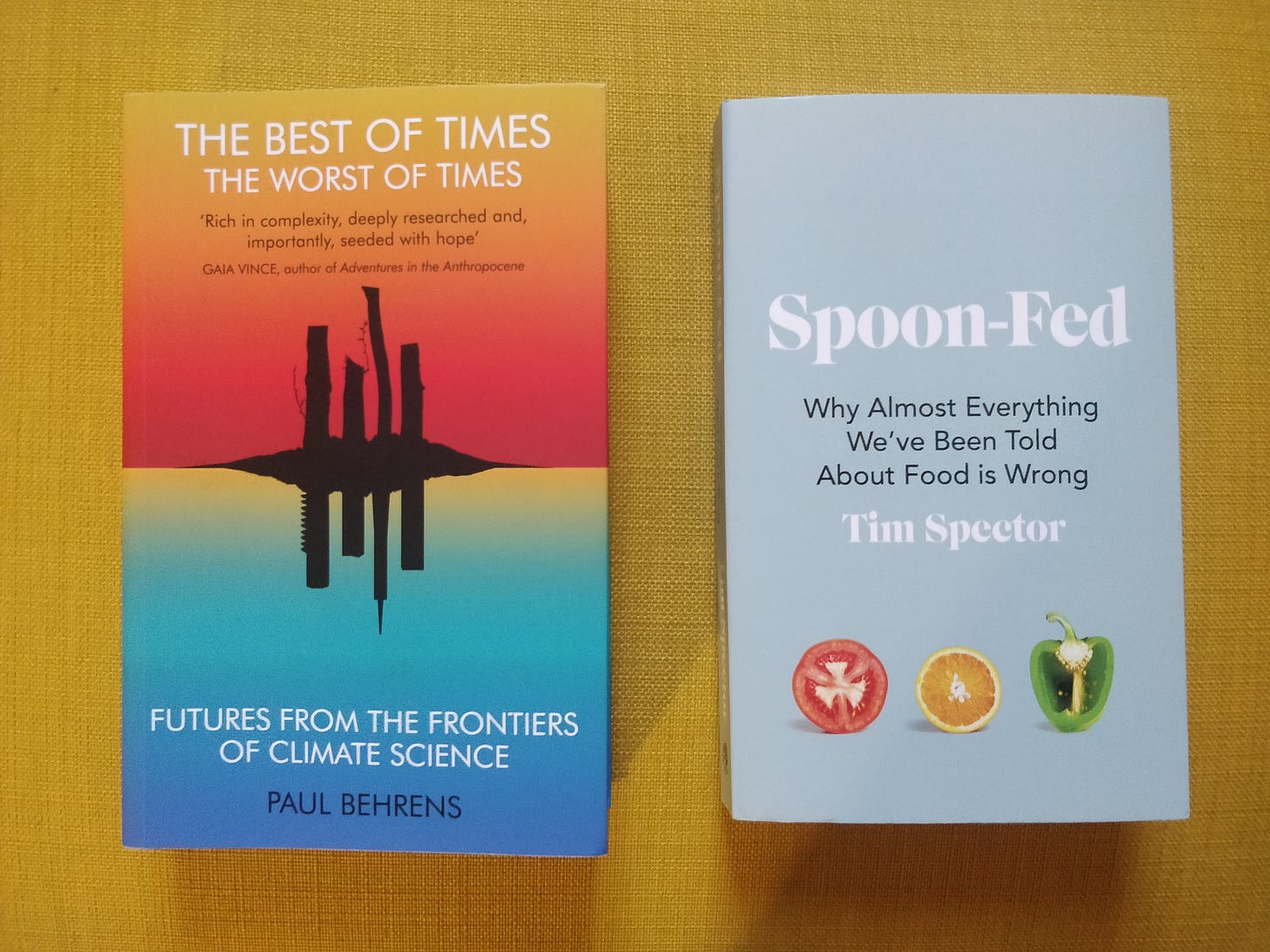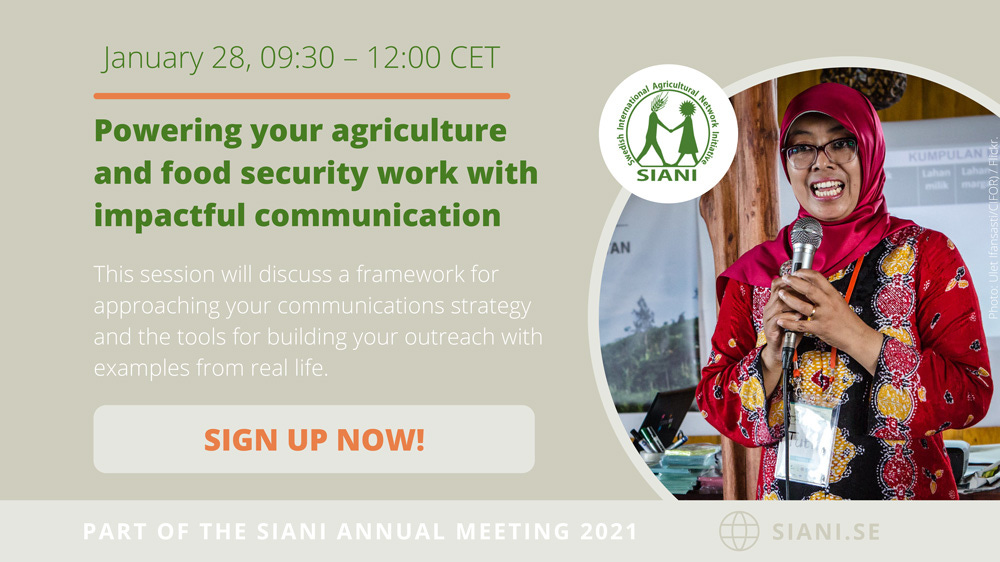Talking food and climate
A newsletter about food systems, climate change and everything connected to them
Happy Friday!
For the first proper post from Thin Ink, I wanted to recommend two books that came out last year - both have enriched my knowledge around food and climate change. They’re also great examples of good science communications. For future posts, I may focus my thoughts and recommendations on things you can read over the weekend. And don’t worry, I plan to keep these missives short.
The Best of Times, The Worst of Times by Paul Behrens
A super informative book, written in a way that’s easy to understand so it’s perfect for beginners wanting to better understand climate issues, including food. The way it is structured, alternating between pessimism and optimism, is intriguing, and unlike most environmental books, it’s full of hope.
Full disclosure: I moderated a virtual discussion in October with him and another author friend on the launch of their books. I also interviewed him about debunking climate myths.
Spoon-Fed by Tim Spector
If you’ve ever been confused by conflicting news headlines that say (insert any food and drinks here) is good for your health one day and horrible for your heart/weight/kidneys the next, this is the book for you.
It explains the problems with most nutritional research, is full of eye-popping statistics and breaks down the long-held myths we have around food. It’s a great read and also a useful reminder of that age-old nugget of wisdom of ‘everything in moderation’. He is also an expert on the gut microbiome.
Discussing food communications
Speaking of communications, SIANI (The Swedish International Agriculture Network Initiative), which is part of the Stockholm Environmental Institute is holding a virtual meeting on Jan 28 (Thursday) about how to better convey messages around food security and agriculture in the quest to build a “resilient, equitable and sustainable food systems”.
It’s part of their 3-day annual meeting that begins on Jan 27. I’ll be one of the speakers, together with some interesting speakers from Kenya, Ethiopia and Sweden. You can register for the event here. More information about the meetings can be found here.
Recent interesting research
Two recent studies further highlighted the ‘unhappy marriage’ between climate change and agriculture.
A study which came out on Jan 18, by researchers from University of Irvine and other institutions warned of a shift in the tropical rain belt which could lead to more drought in southeastern Africa, Madagascar and Central America and intensified flooding in southern India, which could threaten biodiversity and food security in many parts of the world by 2021. Unfortunately you need to pay to access the full paper.
This one - open access, yay! - came out last week. It looked at data of more than 100,000 children and 30 years of temperature and precipitation data and found that the higher the temperatures, the less diverse the children’s diet, ultimately affecting their nutrition levels. In fact, the researchers, led by University of Vermont, said they found “climate factors, especially temperature, have a greater relative negative impact on diet diversity than the positive relationship of many factors that are often the target of development interventions, including education, water and sanitation, and poverty alleviation”.
There’s so much to talk about when it comes to communicating issues around food and climate so I’m keen to hear your thoughts on a particular campaign or book or study that you find illuminating.
Do send them on twitter @thinink, to my LinkedIn page or via e-mail thin@thin-ink.net.
Have a great weekend!




